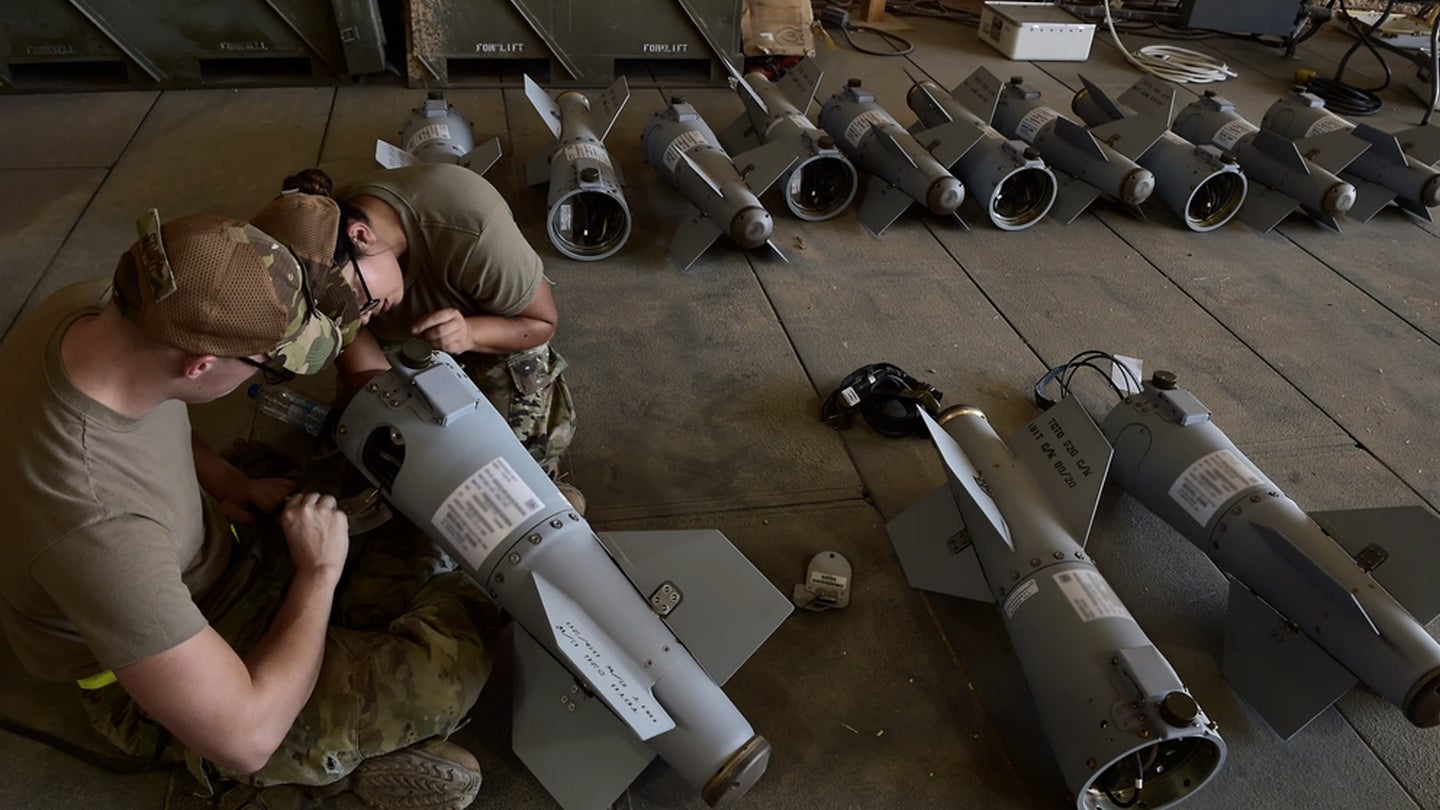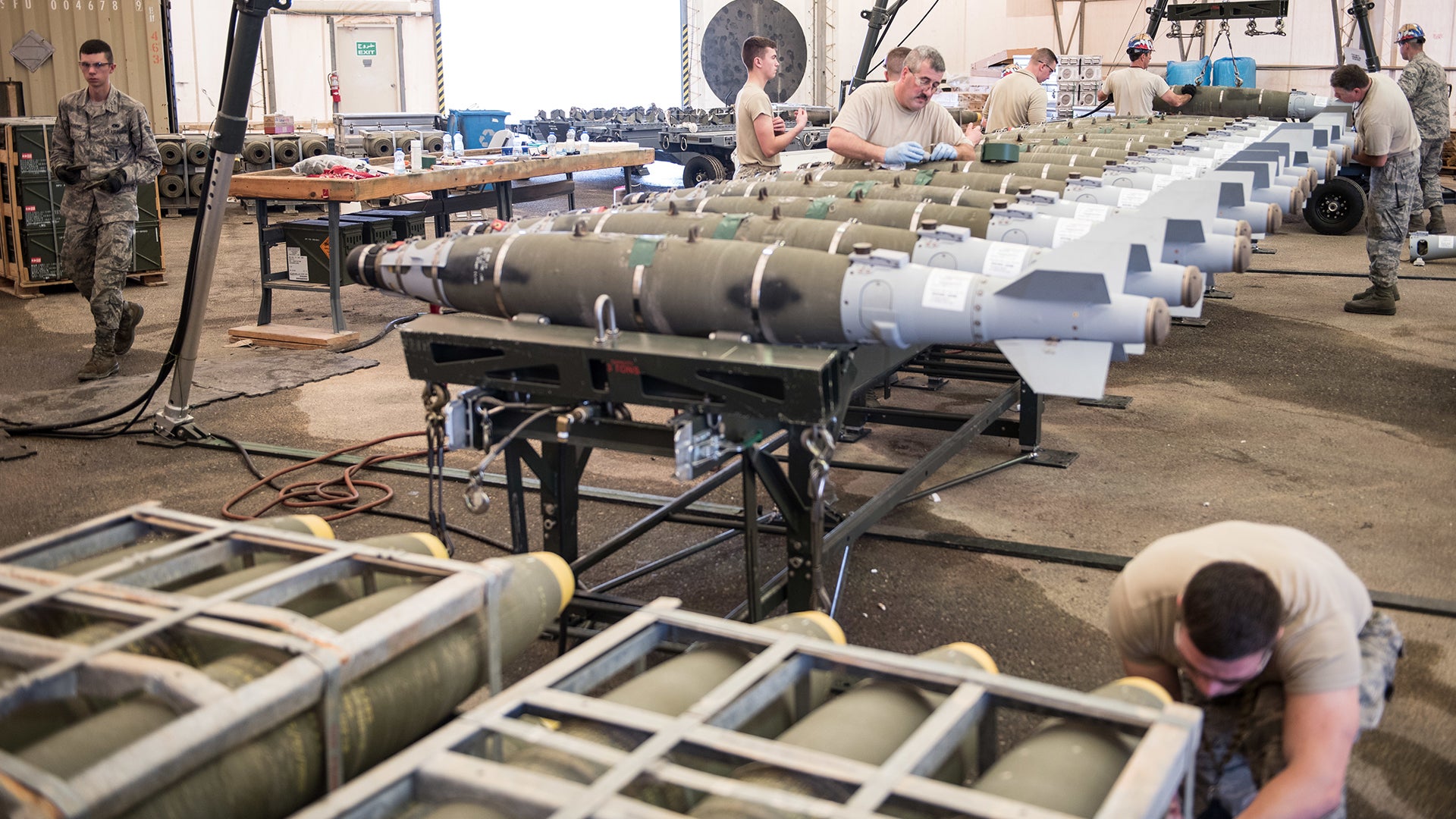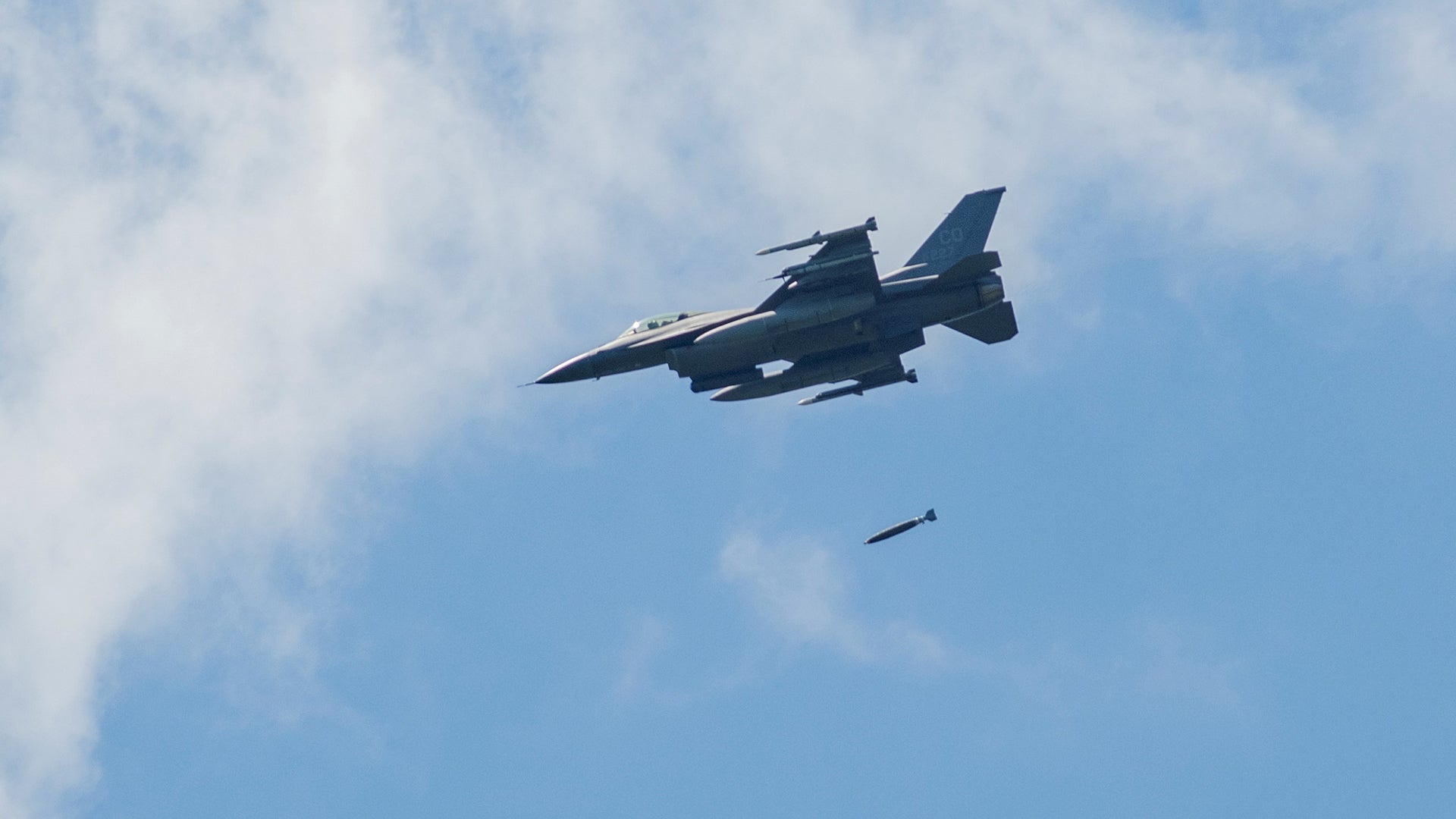JEFF SCHOGOL

Russian forces can jam some of the GPS-guided weapons that the United States has given Ukraine, including Joint Direct Attack Munitions, or JDAMs, according to Business Insider, which cited leaked documents.
The report leaked online found that four of nine extended-range JDAMs used by Ukrainian forces had missed hitting Russian targets, possibly due to jamming, and it recommended that the Russian jammers be taken out, Insider reported on Tuesday.
The information about Russia’s ability to jam JDAMS and other precision-guided weapons was included in a massive data leak the Justice Department is investigating. The Pentagon has also launched an effort spanning several Defense Department organizations to look at the national security consequences of classified documents being leaked online.
It is unclear how many JDAMs the Ukrainians have. The Defense Department’s latest fact sheet on U.S. military assistance to Ukraine does not say exactly how many “precision aerial munitions” and “precision-guided rockets” Ukraine has received.
 Airmen from the Vermont Air National Guard assemble 500-pound joint direct attack munitions on Dec. 2, 2016. (Master Sgt. Benjamin Wilson/U.S. Air Force)
Airmen from the Vermont Air National Guard assemble 500-pound joint direct attack munitions on Dec. 2, 2016. (Master Sgt. Benjamin Wilson/U.S. Air Force)Retired Air Force Lt. Col. Glenn “Powder” Carlson, a former B-52 electronics warfare officer, said he was not surprised that the Russians can jam some types of JDAMs.
“Any signal in the EMS [electromagnetic spectrum] has vulnerabilities,” said Carlson, a former president of the Association of Old Crows, a professional organization for electronic and cyber warfare professionals.
Each type of JDAM has a different set of vulnerabilities, Carlson told Task & Purpose. While the U.S. military has countermeasures against attempts to jam GPS-guided weapons, Carlson declined to say exactly what those measures entail.
Meanwhile, Russia, China, and other potential adversaries have closely observed how the U.S. military has used GPS-guided weapons since NATO air operations in 1999 against Serbia so that they could improve their jamming technologies, Carlson said.
“It is the typical chess game: Moves and countermoves,” Carlson said.
U.S. military commanders have long known that American communications and navigation systems would be jammed in a war against Russia or China. In 2018, the head of U.S. Special Operations Command said that a U.S. military AC-130 gunship over Syria was temporarily disabled by an electronic warfare attack.
It is unclear whether Syria or Russia launched the attack. An Air Force F-16 Fighting Falcon drops 500-pound Joint Direct Attack Munitions at the Fort McCoy impact area during the exercise. (Kevin Clark/U.S. Army)
An Air Force F-16 Fighting Falcon drops 500-pound Joint Direct Attack Munitions at the Fort McCoy impact area during the exercise. (Kevin Clark/U.S. Army)
 An Air Force F-16 Fighting Falcon drops 500-pound Joint Direct Attack Munitions at the Fort McCoy impact area during the exercise. (Kevin Clark/U.S. Army)
An Air Force F-16 Fighting Falcon drops 500-pound Joint Direct Attack Munitions at the Fort McCoy impact area during the exercise. (Kevin Clark/U.S. Army)Over the past 10 years, the U.S. military has put a lot of work into making GPS more secure, said James Lewis, a technology expert with the Center for Strategic and International Studies think tank in Washington, D.C.
As a long-term solution, the U.S. military is also looking at using quantum computing to geolocate targets because it is not vulnerable to jamming, Lewis told Task & Purpose.
The Russians have been looking for new ways to disrupt GPS since the last century because they realize the U.S. military is wholly dependent on GPS-guided weapons, Lewis said.
Since 2015, the Russians have deployed “brute force” jammers to Syria that disrupt a large swath of the electromagnetic spectrum, Lewis said. These jammers are so powerful that they can affect planes landing in Tel Aviv, Israel.
“The problem with these big, powerful, brute force jammers is they’re easy to target,” Lewis told Task & Purpose. “It’s sending up a big signal that says: ‘Here I am. Target me.’ If you don’t have to worry about people shooting back, it can be attractive. I think that’s one reason you see it used in Syria.”
The Russians also have more sophisticated jammers that can jam specific frequencies, and they have invested time and effort into developing capabilities to spoof a GPS signal and throw navigation systems off course, Lewis said. That is why the Chinese military, which lags behind Russia in electronic warfare capabilities, is buying Russian-made jammers.
However, Lewis noted there is an ongoing debate among experts about why the Russians have not fared better at electronic warfare in Ukraine given the amount of money they have spent on jamming technologies.
“Some people say: Well, it’s not as good as we thought, like everything else,” Lewis said. “Other people say: No, they are saving these capabilities. They know these capabilities will be carefully studied and they’re saving it for a conflict with NATO. I don’t know which one is right.”
No comments:
Post a Comment